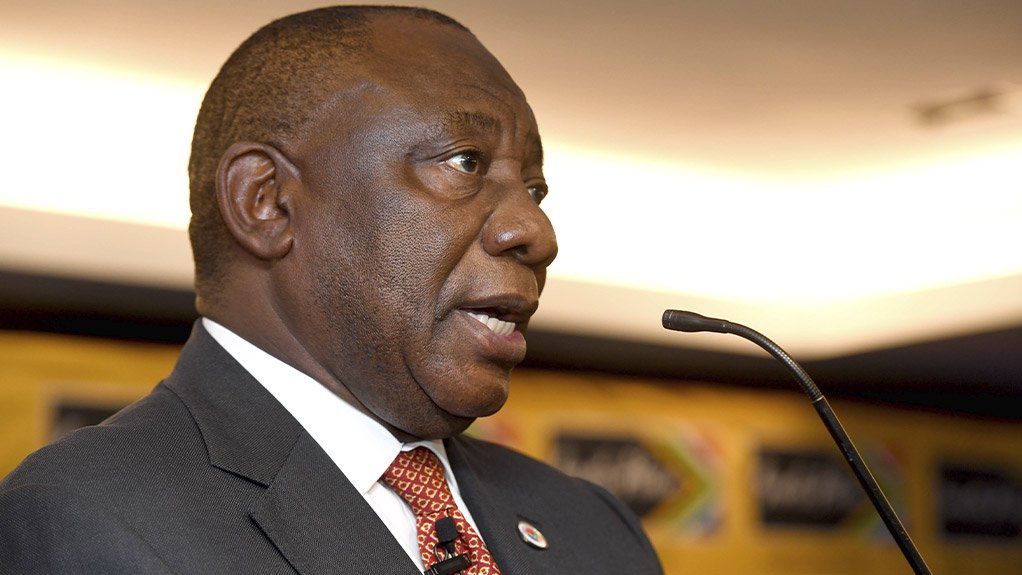The Presidency on Friday announced the names of the members of the Presidential Economic Advisory Council, which will start its work from October 1.
Plans to establish the council were announced by President Cyril Ramaphosa in his June State of the Nation Address. The council is aimed at ensuring greater coherence and consistency in the implementation of economic policy and ensuring that government and society, in general, are better equipped to respond to changing economic circumstances.
Comprising local and international economic thought leaders, the council will advise the President and government more broadly, facilitating the development and implementation of economic policies that spur inclusive growth.
Members, who will volunteer their time and be compensated for subsistence and travel, are appointed to serve a three-year term.
It is expected that the council will serve as a forum for in-depth and structured discussions on emerging global and domestic developments, economic and development policies and to facilitate socialisation and diligent execution thereof.
It will be supported by a secretariat drawn from the National Treasury and the policy and research services within the Presidency that will, inter alia, feed enhanced economic research into the deliberations of the council. The council is further expected to establish clear protocols for engaging with other critical structures such as the National Economic Development and Labour Council (Nedlac).
The council will meet quarterly at first and will, in due course, decide on timelines that will best enable deliberations among members and the council’s interface with the President.
COUNCIL MEMBERS
The members of the council are:
-Professor Benno Ndulu, who served as the governor of the Bank of Tanzania from 2008 to 2018. He is best known for his involvement in setting up and developing the African Economic Research Consortium.
-Professor Mzukisi Qobo, a professor of international business, who has written extensively on trade and the political economy.
-Professor Dani Rodrik, a professor of International political economy at the John F Kennedy School of Government, Harvard University. He has conducted specific research on the South African economy.
-Professor Mariana Mazzucato, a professor in the economics of innovation and public value and director of the Institute for Innovation and Public Purpose at the University College London.
-First National Bank chief economist Mamello Matikinca-Ngwenya.
-Dr Renosi Mokate, a former executive and Dean at the University of South Africa Graduate School of Business Leadership and former deputy governor of the South African Reserve Bank.
-Dr Kenneth Creamer, a senior lecturer at the University of the Witwatersrand (Wits).
-Professor Alan Hirsch, a director of the Graduate School of Development Policy and Practice at the University of Cape Town (UCT).
-Professor Tania Ajam, who teaches public financial management at the University of Stellenbosch School of Public Leadership.
-Dr Grové Steyn, an infrastructure and regulatory economist.
-Wandile Sihlobo, an agricultural economist and head of agribusiness research at the Agricultural Business Chamber of South Africa.
-Dr Liberty Mncube, currently a scholar at Wits.
-Professor Fiona Tregenna, a professor in the Department of Economics and Econometrics at the University of Johannesburg.
-Professor Haroon Bhorat, a professor of economics and director of the Development Policy Research Unit at UCT.
-Ayabonga Cawe, a development economist actively engaged as a public intellectual.
-Professor Vusi Gumede, a former chief policy analyst in the Presidency’s Policy Coordination and Advisory Service.
-Dr Thabi Leoka, an economist who has worked for various organisations in the financial sector and was recently appointed by Ramaphosa to the Public Investment Corporation Commission of Inquiry.
-Professor Imraan Valodia, an economist and dean of the Faculty of Commerce, Law and Management at Wits.
The Presidency is also finalising the appointment of a seasoned economist and leader from West Africa, who has accepted an invitation to serve as a member of the council.
Ramaphosa thanked the council members for accepting the invitation to serve South Africa’s development in their capacity as members of the Presidential Economic Advisory Council and assured them that their insights, critiques and recommendations would, ultimately, serve to build a sustainable and inclusive economy that meets the needs of citizens and is globally competitive at the same time.
EMAIL THIS ARTICLE SAVE THIS ARTICLE ARTICLE ENQUIRY
To subscribe email subscriptions@creamermedia.co.za or click here
To advertise email advertising@creamermedia.co.za or click here











